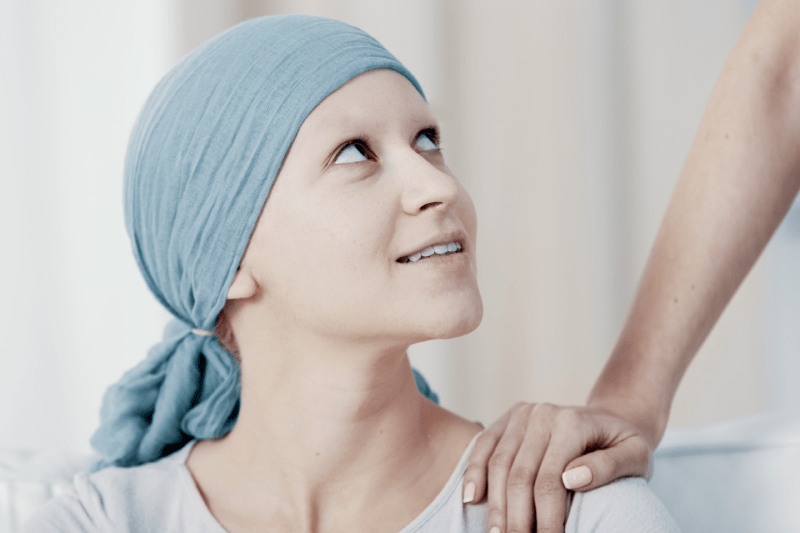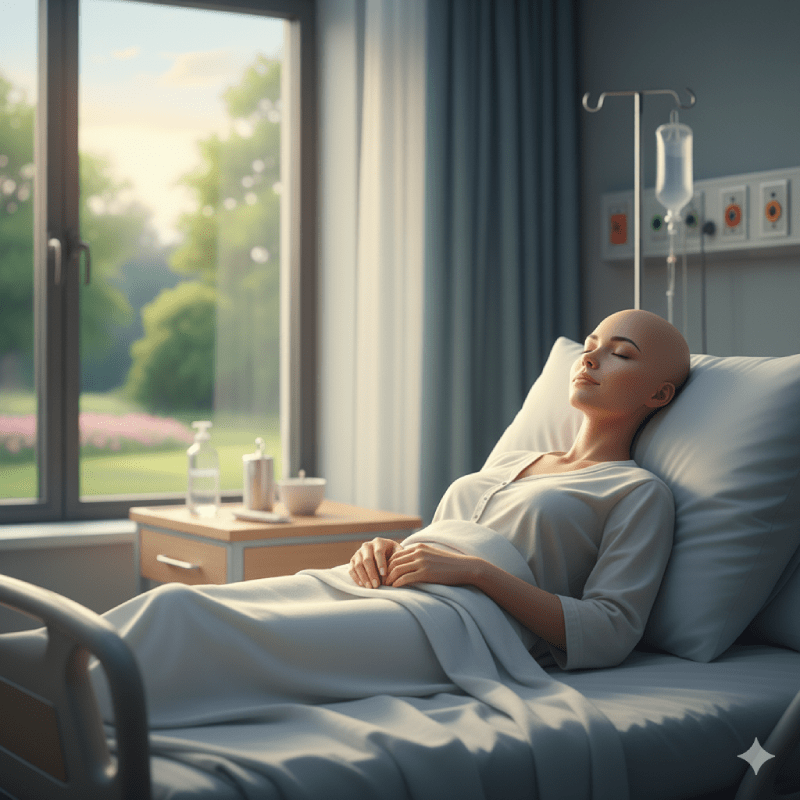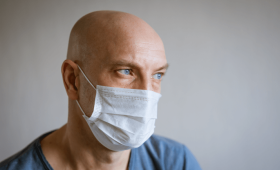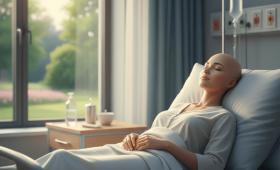A cancer diagnosis can be a challenging process filled with uncertainty for both patients and their loved ones. Many questions come to mind during this period. This comprehensive guide aims to support you on this difficult journey by providing scientific and understandable answers to the most frequently asked questions about cancer treatment. Remember that the information here is general, and you should always consult an oncologist or specialist to determine the most accurate treatment plan for each patient.
What is cancer and how does it form?
Cancer is a disease characterized by the uncontrolled growth and proliferation of cells in the body. Normally, cells grow, divide, and eventually die. In cancer, however, this cycle is disrupted. Cells that are damaged due to genetic mutations or environmental factors lose their normal function and begin to multiply without limit.
These cells can clump together to form a mass (tumor) or spread to other parts of the body through the bloodstream (metastasis). Cancer is not a single disease but a complex one with hundreds of different types depending on genetic and environmental factors.
How is cancer diagnosed?
Cancer diagnosis is usually a multi-stage process. First, a physical examination, the patient’s complaints, and medical history are evaluated. Then, suspicious areas in the body are searched for with imaging tests (X-ray, ultrasound, tomography, MRI, PET-CT). A definitive diagnosis is made with a biopsy. A biopsy is the examination of a small piece of suspicious tissue under a microscope in a pathology lab. This examination is the most reliable method for determining if cells are cancerous and identifying the type of cancer. Blood tests and other laboratory tests can also aid in the diagnostic process.
What is staging and why is it important?
Cancer staging is the process of determining the degree of spread and size of the cancer in the body. The “TNM” system is generally used: T (Tumor size), N (Lymph node involvement), M (Metastasis). Staging is vital for creating a treatment plan and estimating the prognosis (course) of the disease.
Stage I cancers are generally at an early stage and are found only in a specific area of the body. Stage IV cancers are those that have metastasized, meaning they have spread to distant parts of the body. Treatment approaches differ for each stage.
What are the cancer treatment options?
Cancer treatment is personalized based on the type and stage of cancer, the patient’s general health, and age. The most common treatment methods are surgery, chemotherapy, radiotherapy, immunotherapy, targeted therapy, and hormone therapy. These methods are usually used in combination, not alone. For example, a tumor may be surgically removed first, followed by chemotherapy or radiotherapy to destroy any remaining cancer cells. The treatment plan is determined by a multidisciplinary team (oncologist, surgeon, radiation oncologist, etc.).
How is a treatment decision made?
The treatment decision is a multidisciplinary one made in collaboration between the patient and the doctor. Doctors from different specialties like oncology, surgery, and radiation oncology come together to evaluate the patient’s condition.
Factors such as the type and stage of cancer, the genetic characteristics of the tumor, the patient’s age, and general health status are considered. The potential benefits and risks of the treatment options are clearly explained to the patient. The patient’s expectations regarding treatment, values, and lifestyle preferences are also taken into account in this process.
Why is getting a second opinion important?
Getting a second opinion for important decisions like a cancer diagnosis and treatment plan can provide additional confidence to the patient and their family. A second specialist can confirm the treatment plan or suggest a different treatment option.
This helps the patient ensure they have access to the best treatment and makes the decision-making process more informed. Most oncologists support patients taking this step. A second opinion should be sought as soon as possible without delay.
What is chemotherapy?
Chemotherapy is a treatment method that uses drugs to destroy or stop the growth of fast-dividing cancer cells. The drugs are usually administered intravenously or orally. Chemotherapy can be applied with a single drug or a combination of multiple drugs. This treatment can have side effects as it can damage healthy cells as well as cancer cells. The side effects vary depending on the type and dose of the drug. Chemotherapy can be used to shrink a tumor before surgery, to destroy remaining cells after surgery, or to treat metastatic cancer.

What is radiotherapy?
Radiotherapy (radiation therapy) is a treatment method that uses high-energy beams to kill cancer cells or slow their growth. It is usually administered through an external machine (external radiotherapy) or radioactive materials placed inside the tumor (brachytherapy). Radiotherapy targets cancer cells in a specific area and is therefore a local treatment. It causes cancer cells to die by damaging their DNA. This treatment can be used to shrink tumors, alleviate symptoms, or reduce the risk of recurrence after surgery.
What is targeted therapy?
Targeted therapy is a type of treatment that uses drugs that target specific molecules or signaling pathways necessary for the growth and spread of cancer cells. These drugs generally have fewer side effects compared to chemotherapy because they cause less damage to normal cells. Targeted therapies are only effective if the cancer cells have a targetable genetic mutation or protein overexpression. Therefore, a genetic analysis of the patient’s tumor is performed before starting treatment.
What is immunotherapy?
Immunotherapy is a treatment method that strengthens the body’s own immune system to fight cancer cells. Cancer cells develop various mechanisms to hide from the immune system. Immunotherapy disrupts these mechanisms, allowing the immune system to recognize and destroy cancer cells. It has yielded groundbreaking results, especially in some types of metastatic cancer, and its side effects are different from chemotherapy.
When is surgical treatment used?
Cancer surgery is a treatment performed to remove the tumor and a certain amount of surrounding healthy tissue from the body. It is generally the main treatment for early-stage tumors, and the chance of recovery is high with complete removal of the tumor. Surgery can also be used to shrink the size of the tumor (debulking), alleviate symptoms (palliative surgery), or to check if the cancer has spread.
What is hormone therapy?
Hormone therapy is a method used in cancer types where hormones support growth (e.g., breast cancer, prostate cancer). This treatment either stops hormone production in the body or blocks the cancer cells’ response to hormones. Hormone therapy can be used alone or in combination with other treatments to slow or stop cancer growth. The side effects are related to changes in hormone levels.
What is the status of cancer vaccines?
Cancer vaccines are treatments that aim to train the immune system to target and destroy cancer cells. There are two main types depending on the purpose of the treatment: preventive vaccines (e.g., HPV vaccine, which can prevent the development of some types of cancer) and therapeutic vaccines (which strengthen the immune response in patients already diagnosed with cancer). Therapeutic vaccines are currently in clinical trials and are approved for some cancer types (e.g., prostate cancer), but their widespread use is limited.
What do clinical trials mean?
Clinical trials are scientific studies that test whether new drugs, treatments, or diagnostic methods are safe and effective. For cancer patients, participating in clinical trials can provide access to the latest treatments that have the potential to yield better results compared to existing standard treatments. However, not every patient may be suitable for a clinical trial, and these trials can have risks and unknown side effects. Therefore, the decision to participate should be made carefully.
What are the common side effects of chemotherapy?
The side effects of chemotherapy vary depending on the type and dose of the drug used and the patient’s general health. The most common side effects include fatigue, nausea and vomiting, hair loss, loss of appetite, mouth sores, diarrhea or constipation, nerve damage (neuropathy), and a drop in blood cell counts. Doctors and nurses offer drugs and advice to manage these side effects.
What are the side effects of radiotherapy?
The side effects of radiotherapy depend on the area being irradiated. For example, radiotherapy to the head and neck area can cause dry mouth, difficulty swallowing, and taste changes. Radiotherapy to the abdominal area can lead to nausea, diarrhea, and fatigue. Side effects usually persist during and for a while after the treatment but decrease over time. Redness and irritation of the skin are also common.
How are nausea and vomiting managed?
One of the most uncomfortable side effects of chemotherapy is nausea and vomiting. Doctors prescribe powerful antiemetic (anti-nausea) drugs to prevent these side effects. It is important to use these drugs regularly before and after treatment. Additionally, eating small and frequent meals, avoiding fatty and spicy foods, and trying natural methods like ginger and mint can also help alleviate nausea.
When does hair loss begin and end?
Hair loss is a common side effect in patients receiving chemotherapy. Hair usually begins to thin about 2-3 weeks after the start of chemotherapy, and the rate of hair loss accelerates. Hair begins to grow back after the treatment is over. This process can take a few months. The color and texture of the new hair may be different from before. It’s important to know that hair loss is a side effect of chemotherapy and that it will return after the treatment ends.
How to cope with fatigue?
Cancer treatment-related fatigue is a condition that does not go away with sleep and negatively affects daily life. To cope with this fatigue, it is important to eat a balanced diet, do light exercise, get rest, and manage your energy. You can talk to your doctor to investigate other possible causes of fatigue (such as anemia).
What should be done for mouth sores and taste changes?
Chemotherapy and radiotherapy can cause mouth sores (mucositis) and changes in the sense of taste. To cope with this, it is important to maintain oral hygiene, use a soft-bristled toothbrush, and avoid acidic and spicy foods. Your doctor may recommend special mouthwashes or medications.
What is neuropathy and is there a treatment?
Neuropathy is a side effect characterized by a feeling of numbness, tingling, pain, or weakness in the hands and feet due to nerve damage. Some chemotherapy drugs can cause this condition. Neuropathy usually improves after treatment ends, but it can be permanent in some patients. Pain relievers or neuropathy medications can be used to alleviate the pain. Physical therapy can also help manage the symptoms.

Skin changes and care
Radiotherapy can cause redness, dryness, itching, and peeling of the skin in the treated area. To cope with this, it is important to keep the skin moisturized, protect it from sunlight, avoid tight clothing, and use fragrance-free soaps. Your doctor or nurse will give you special creams and advice for skin care.
Why do blood counts drop and what does it mean?
Chemotherapy can affect the bone marrow, slowing down the production of blood cells (white blood cells, red blood cells, and platelets). A drop in white blood cells increases the risk of infection, a drop in red blood cells causes fatigue related to anemia, and a drop in platelets increases the risk of bleeding. This condition is monitored with regular blood tests and managed with treatments like medication or blood transfusions when necessary.
How should nutrition be during treatment?
Eating well during treatment is vital for the body to respond better to treatment and cope with side effects more easily. Care should be taken to get enough protein, vitamins, minerals, and calories. If there are problems like nausea and loss of appetite, it is beneficial to eat small, frequent portions and consume liquid foods and easily digestible foods. The best thing to do is to get support from a nutritionist.
Can physical activity be continued?
Light and regular physical activity during cancer treatment can help reduce fatigue, lift morale, and improve overall quality of life. Light exercises such as walking, yoga, or swimming should be preferred. However, be sure to consult your doctor before starting any activity and listen to what your body needs. Overly strenuous exercises should be avoided.
Why is psychological support important?
Cancer is not only a physical illness but also an emotional and psychological experience. It can be difficult to cope with feelings like anxiety, depression, fear, and stress. Getting support from a psychologist or psychiatrist can help manage emotions and thoughts, improve communication skills, and increase quality of life. Support groups can also be useful for meeting people who share similar experiences.
Can one work during treatment?
The decision to continue working during treatment depends on the type of cancer, the intensity of the treatment, and the nature of the patient’s job. While some patients can manage the side effects of treatment and continue working, for others it may not be possible. It is important to openly discuss this with your employer and doctor and to consider options such as flexible working hours or taking time off from work.
Sexual health after cancer
Cancer and its treatments can affect sexual life. Hormone therapies or radiotherapy to the pelvic area can alter sexual functions. Do not hesitate to talk to your doctor or a sex therapist about your concerns regarding sexual health. These issues are often solvable, and various supports are available to improve the quality of your sexual life.
Is it possible to preserve fertility?
Some cancer treatments (especially chemotherapy and radiotherapy) can affect fertility. It is very important to talk to your doctor about this before starting treatment. If you plan to have children in the future, fertility preservation options such as egg or sperm freezing can be considered. This is a step that should be taken before starting treatment.
Why are follow-up (surveillance) check-ups important?
After treatment ends, regular follow-up check-ups are vital for monitoring for cancer recurrence or late-onset side effects. These check-ups can include physical examinations, blood tests, and imaging tests. The follow-up plan is determined by the type and stage of the cancer and can continue for many years.
What is the risk of relapse (recurrence)?
Recurrence is when cancer reappears after treatment. This risk varies depending on the type and stage of cancer. Your doctor will discuss the risk of recurrence for your specific situation and the measures that can be taken to reduce this risk. Regular follow-up check-ups are the best way to detect a possible recurrence at an early stage.
What is supportive care (Palliative care)?
Supportive care is a specialized field of medicine that focuses on alleviating the symptoms and side effects caused by cancer and its treatments. This care can be applied from the time of diagnosis, regardless of the stage of the disease. The goal is to improve the patient’s quality of life. The supportive care team specializes in areas such as pain management, nausea control, and psychological support.
How is pain management done?
Pain is a common problem during cancer treatment. It can be managed with various methods depending on the source and severity of the pain. Treatments such as pain relievers, nerve blocks, or radiotherapy can be used to alleviate pain. If you have pain, be sure to inform your doctor, as pain is a manageable condition and can seriously affect your quality of life.
What should be considered about alternative and complementary therapies?
Alternative therapies are methods used instead of standard medical treatment and are usually not scientifically proven. Complementary therapies are methods used together with standard treatments to help manage side effects (e.g., acupuncture, massage, meditation). Be sure to consult your doctor before trying such therapies, as some can affect the effectiveness of standard treatments or be harmful.
What is the process of returning to normal life after treatment?
Returning to normal life after cancer treatment is a slow and gradual process. Side effects will decrease over time, and your energy level will slowly return. It is important to be patient and gentle with yourself during this period. You can get support from your doctor on matters such as returning to work, starting physical activity, and reintegrating into social life.
This document aimed to provide you with a guide by addressing the most important topics related to cancer. I hope this information helps you and your loved ones feel more informed and empowered during this difficult process.



